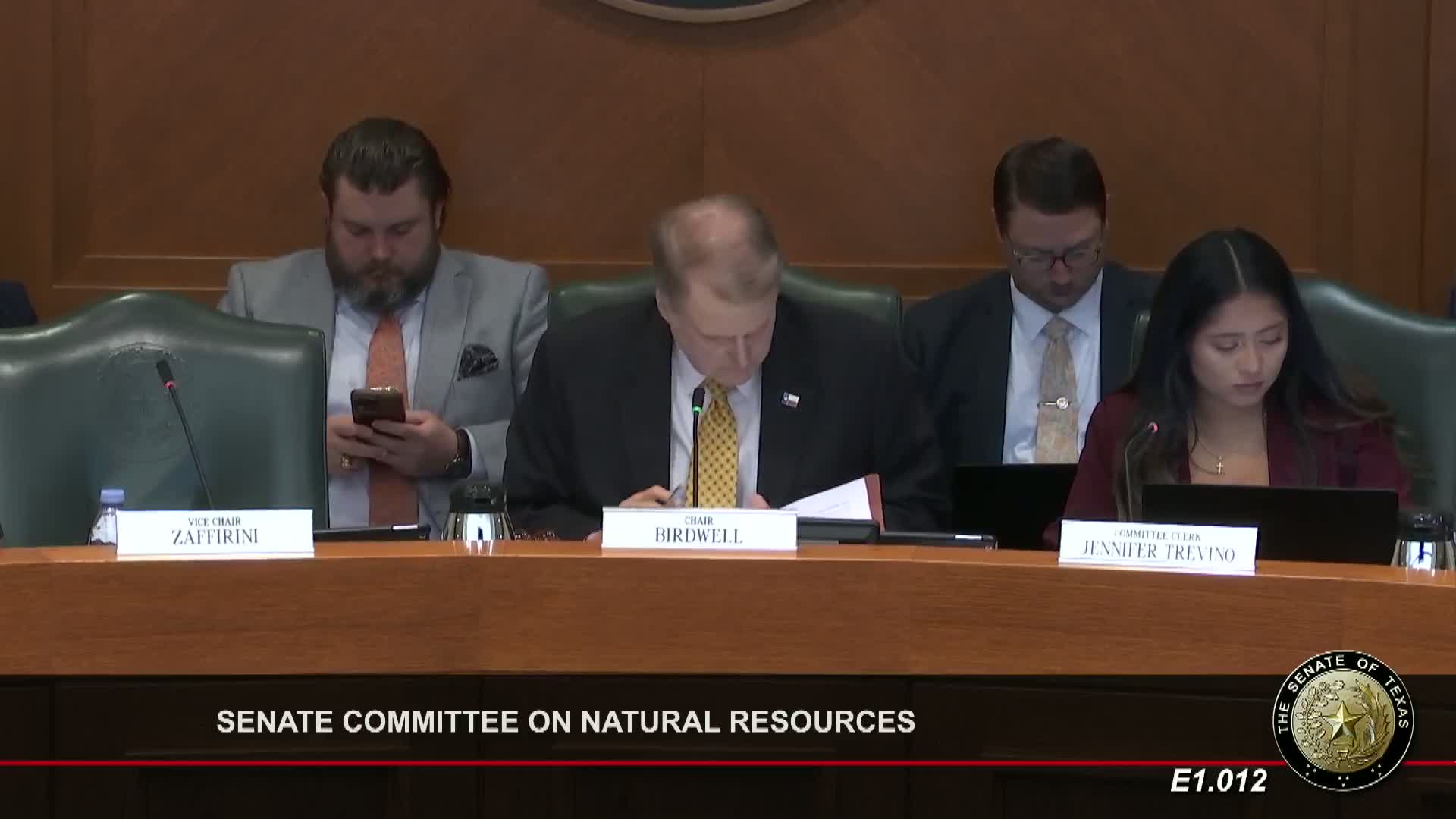Article not found
This article is no longer available. But don't worry—we've gathered other articles that discuss the same topic.
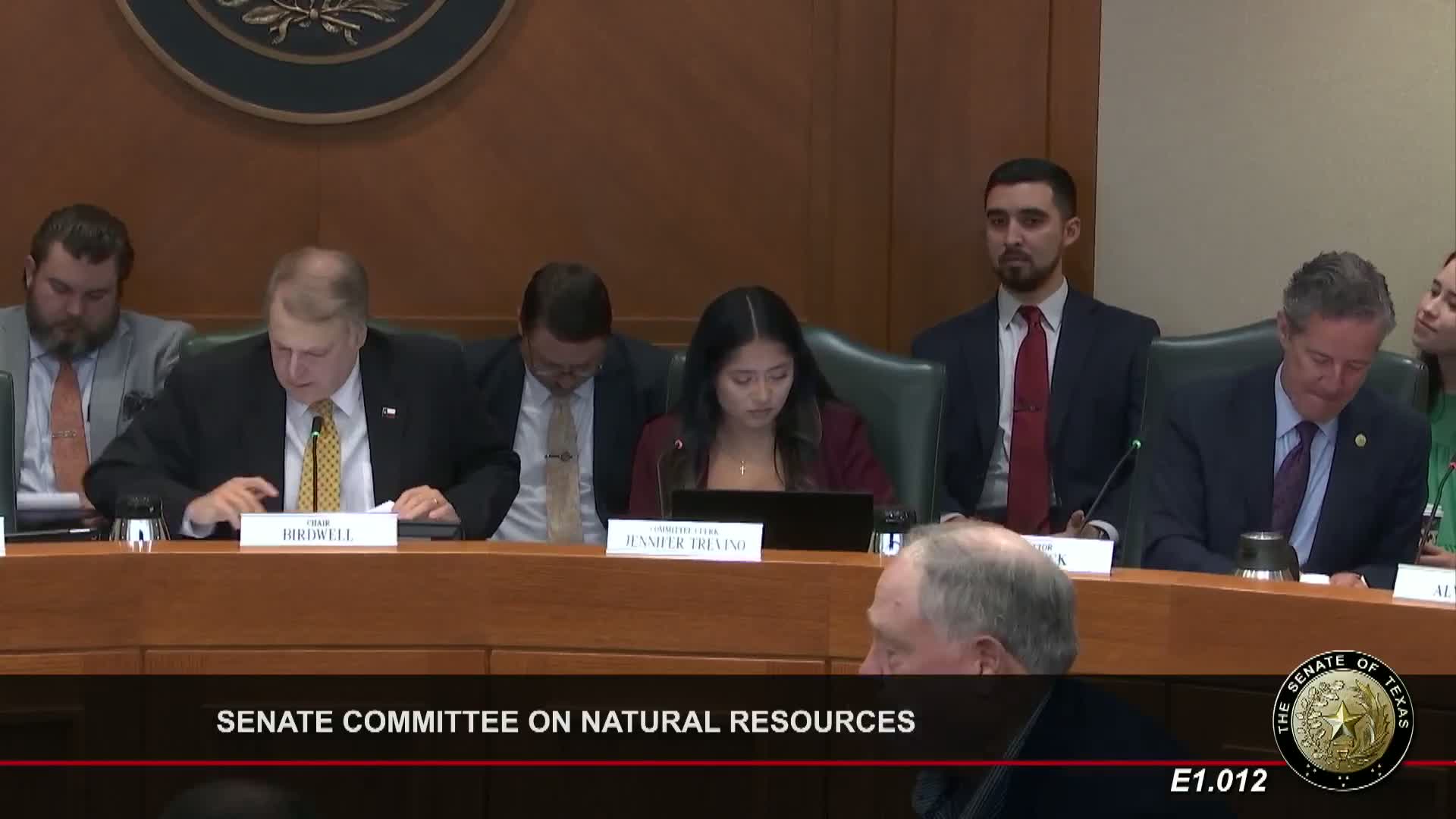
Committee hears mixed testimony on bill allowing utilities to defer and later recover gas infrastructure costs
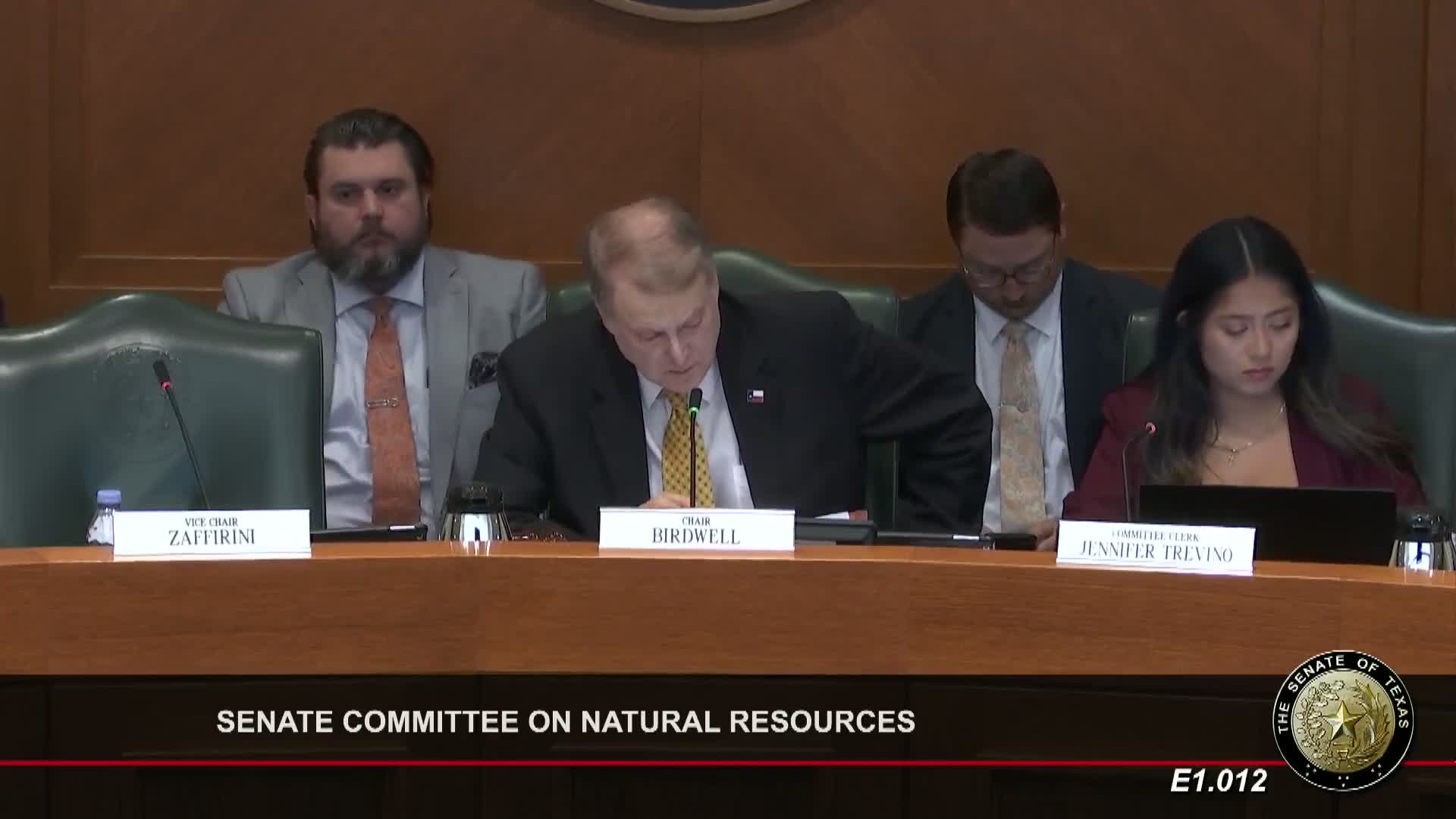
Senate committee debates bill to allow cancellation of long‑inactive municipal solid waste permits
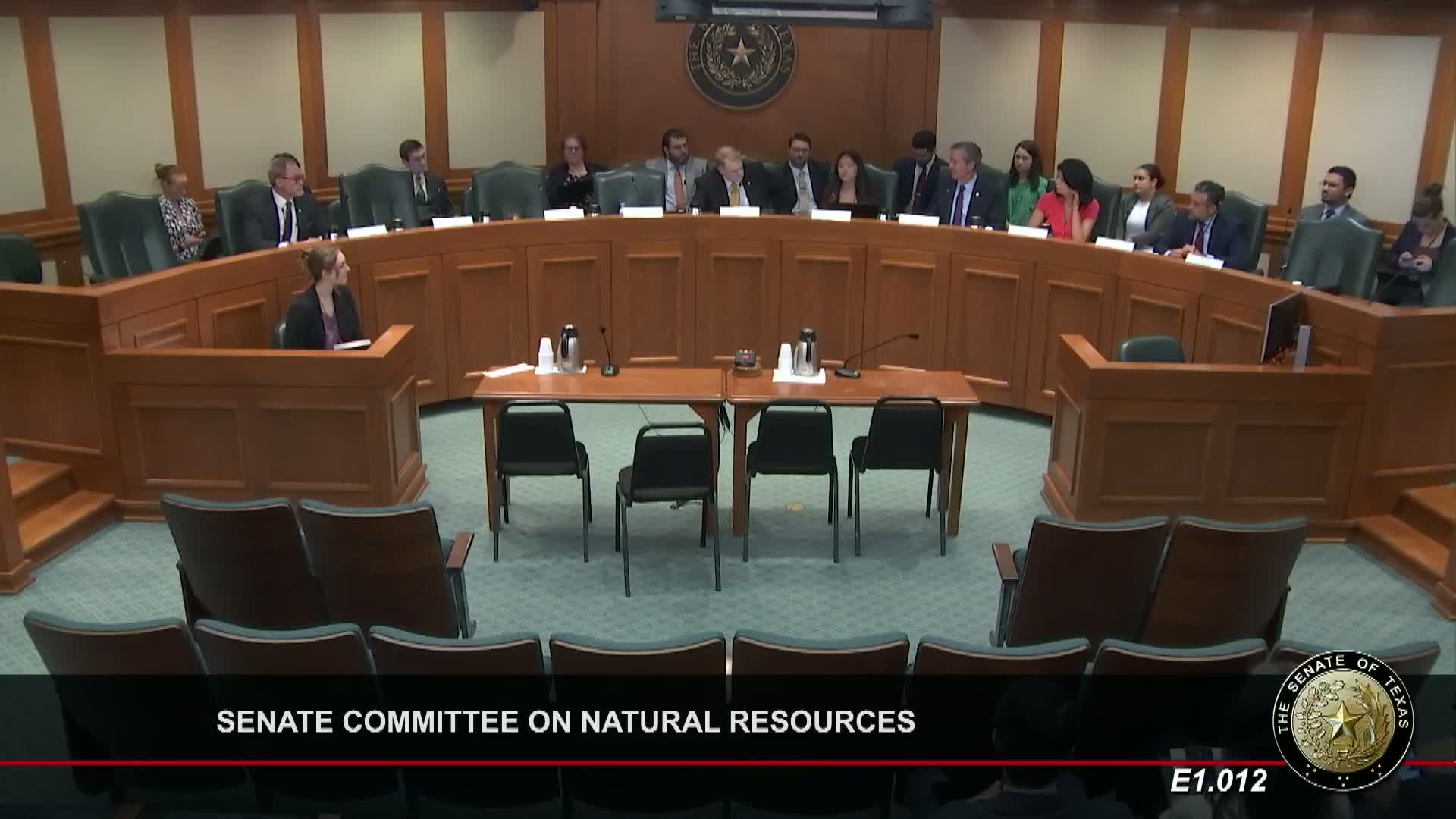
Committee reviews substitute to codify interagency process for disconnecting power at hazardous well sites
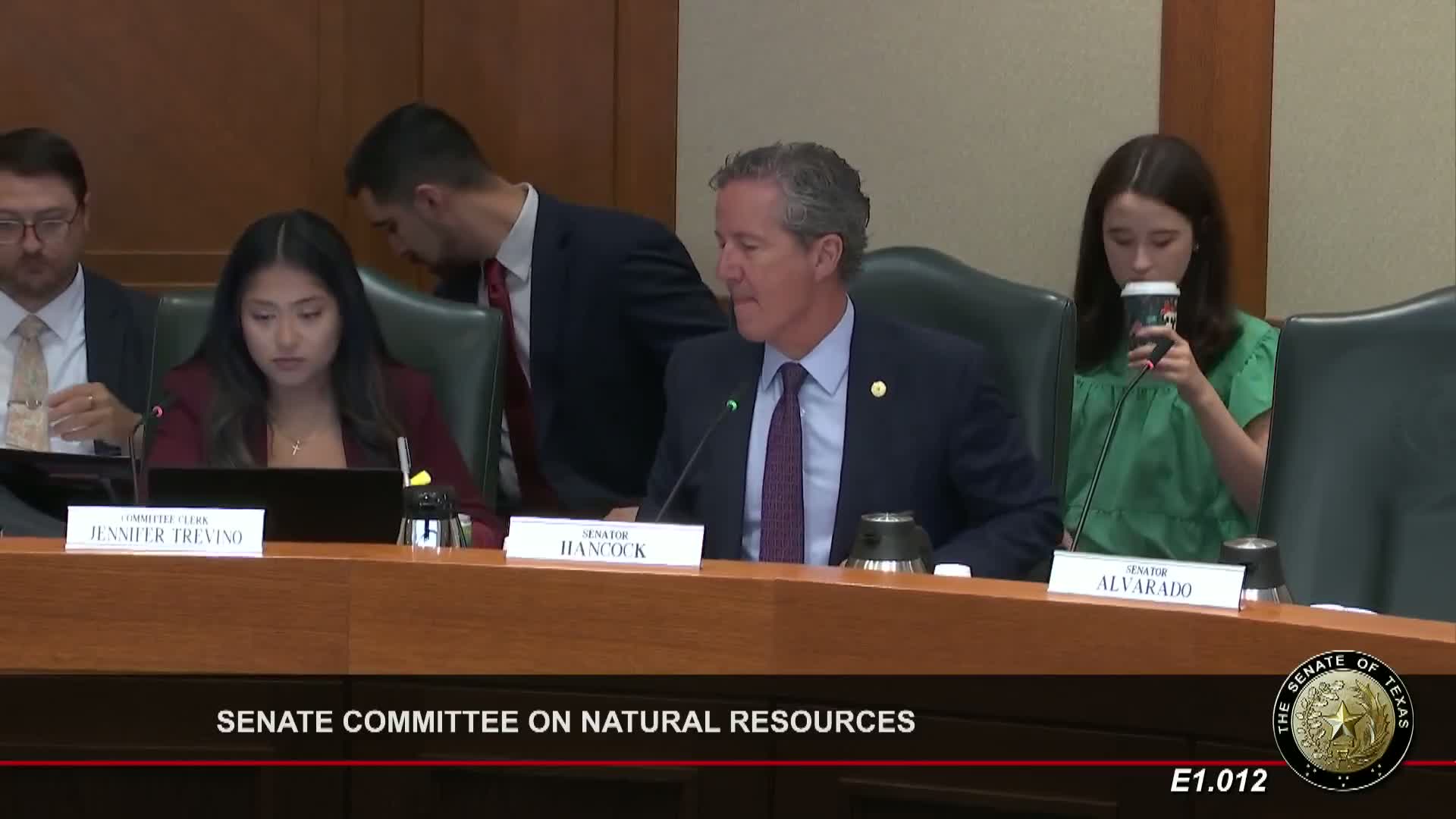
Senate committee hears testimony supporting bill to force removal or de-energizing of electrical equipment at long‑inactive oil wells
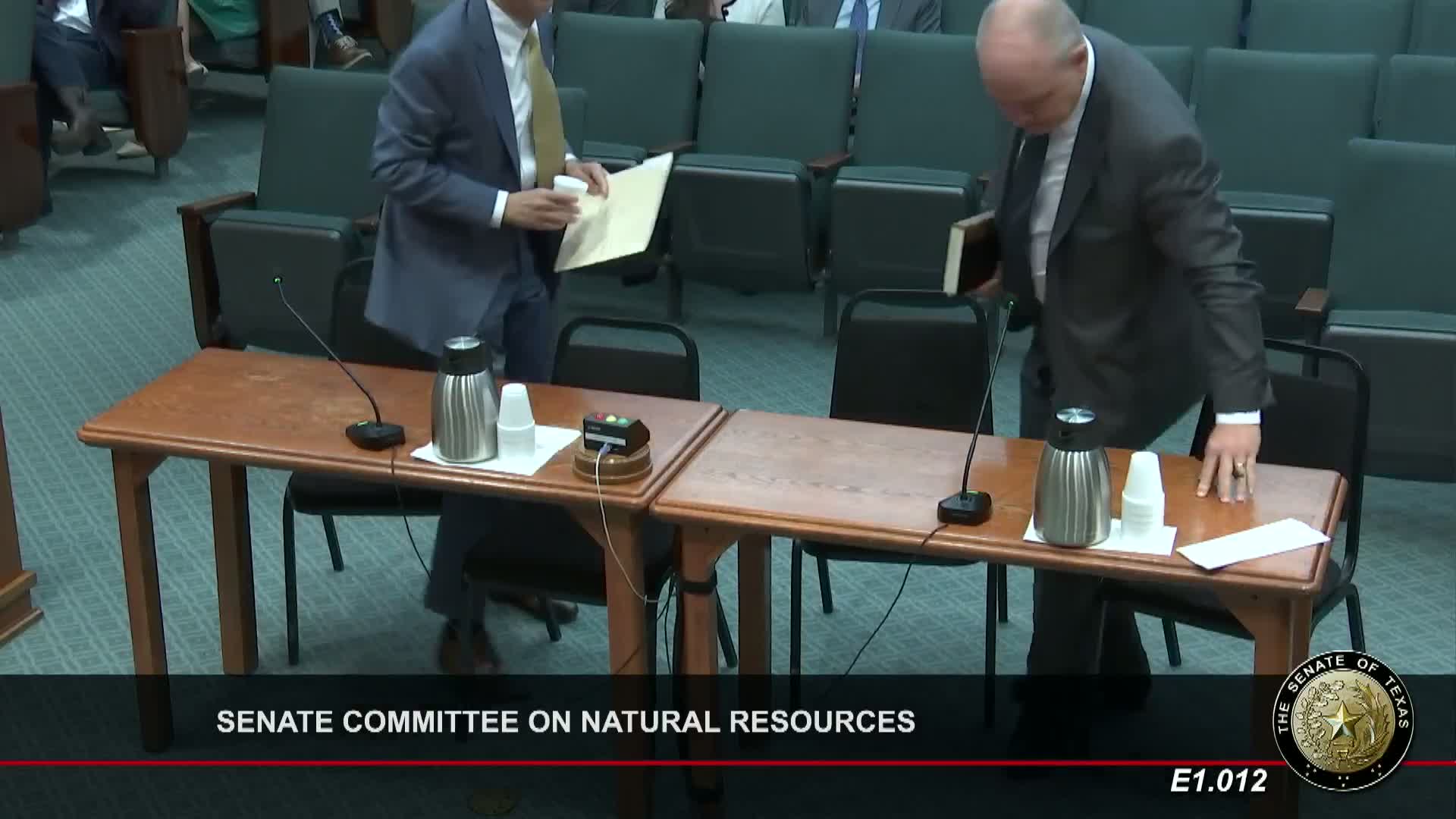
Committee reports companion to Senate bill establishing temporary self‑insurance pool for certified prescribed burn managers
